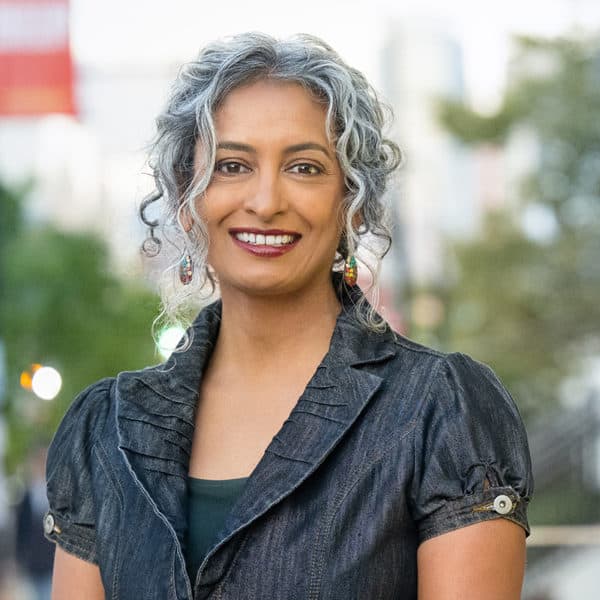Advertisement
Caste discrimination persists in the U.S. How are legislators addressing it?

The Indian government officially abolished the caste system in 1950. But discrimination persists across South Asia against Dalits, a group of people from historically oppressed caste communities.
And Dalits in the United States say caste discrimination is alive and well here. In 2020, Equality Labs, a civil rights group, received at least 250 unsolicited complaints related to castism, including sexual harassment, slurs and beyond.
A legislative movement to address caste discrimination is growing. A law banning caste discrimination passed in Seattle, and California is considering a similar bill.
Sonia Paul is a journalist who covers caste. She’s the host of a new BBC radio documentary called “The Hidden Caste Codes of Silicon Valley.”
“Anti-discrimination policies have changed as the United States has evolved, as different kinds of identities have come into consciousness,” Paul says. “We're seeing caste identities come into consciousness too.”
5 questions with Sonia Paul on caste discrimination in the U.S.
What is caste?
“Caste is a system of social hierarchy that ranks people based on their birth. And it's not just in India. It manifests across South Asia. And we have the equivalent of caste communities around the world. But in South Asia, caste has had associations with purity and social status, where you then see people from different caste communities performing certain jobs based on their perceived status.
“For example, people from historically oppressed caste groups would perform jobs that might be considered unclean or impure, such as manual scavenging or working with leather. And nowadays, you see people from different caste communities performing various types of jobs. But the key thing to understand about caste is that it is hereditary and it is hierarchical.
“Caste was first mentioned in ancient Vedic scriptures, which has formed the basis of Hinduism, but caste manifests across all South Asian religions. It's not exclusive to Hinduism at all.”
Advertisement
How have caste biases shown up in the U.S.?
“The evidence is very coded and often invisible to the untrained eye. And I think the important thing to realize is that the vast majority of Indians in the United States come from historically privileged caste communities. People from historically privileged caste communities may not know their castes or say that caste is [not] relevant to them, but that is also because they've never had to deal with the burden of what their castes signify to other people or to themselves.
“When it comes to the allegations that have come forward in these tech companies, we hear about people asking these sorts of coded questions like, ‘where is your family from? What did they do?’ And in India, specifically, caste is incredibly nuanced across region and across linguistic groups.
“One of the people featured in the BBC documentary talked about how he had one manager who was asking him about the pronunciation of his last name. Based on the exact pronunciation, he might come from a Dalit group in one area of India or a more privileged caste group in another area of India. It's highly nuanced and it is variable. Because it is hidden, it is invisible, and it's not something you can see on a person's skin.”
Why do so many Dalit people in the U.S hide their identities when speaking with the media about the discrimination they face?
“There is so much shame associated with caste. And I think one of the things that we're hearing from a lot of Dalits is them grappling still with internalized shame. They've come here to the U.S., and they feel like they're being forced to be ashamed again. I think another thing is that when you hear so many people deny the existence of caste and deny the existence of caste discrimination, you don't want to even be outed as someone who speaks out against them, let alone someone who is from an oppressed caste community, because the pushback is just so much.
“Most of the people who are here and alleging caste discrimination come from first-generation immigrant communities. And many of these people have vulnerable immigration statuses, so they don't want to do anything that would push the boundaries of what they're experiencing here. They just want to be here comfortably. And even if they've experienced discrimination, they don't want to make a big deal out of it because it just adds to more stress that they're already experiencing.”
Where is the opposition to this legislation to ban caste discrimination in California coming from?
“There's a lot of opposition, mostly coming from Hindu groups who feel that adding caste as its own specific category under anti-discrimination laws is going to make Indian Americans, and particularly Hindus, a target for discrimination as alleged perpetrators of caste bias. And this is an ongoing issue among some Hindus in the United States, where they say they feel that their religion is always associated with castes and cows and curry. And then they're more than that. And here we have [a bill which could be] calling out caste even more. But the [California bill] doesn’t make any associations with religion.”
What have tech companies tried to do about caste discrimination in their offices?
“Major tech companies said they don't tolerate caste-based discrimination whatsoever. Apple actually has explicitly added caste in its anti-discrimination policies. But now I think the pressure on tech companies has sort of moved to pressure on the legal system. When you don't have caste explicitly defined, some activists say that it makes it that much harder to explain what's going on, even if the laws might implicitly include caste. It's not made explicit. It's so much harder for people to explain what's happening. It's so much harder for enforcement agencies to realize, oh, this is this type of discrimination and this is how we can tackle it.”
Gabrielle Healy produced and edited this interview for broadcast with Todd Mundt. Healy also adapted it for the web.
This segment aired on May 3, 2023.

